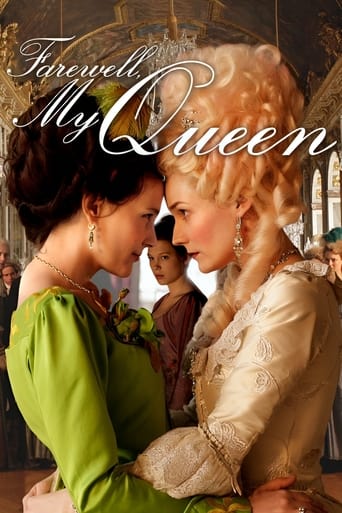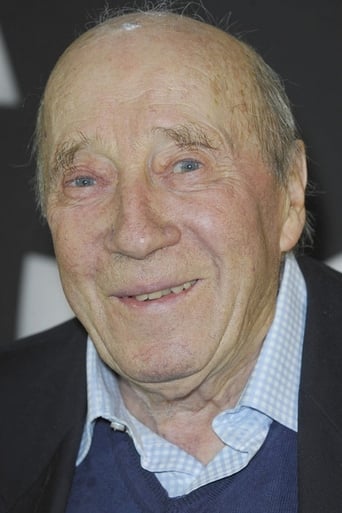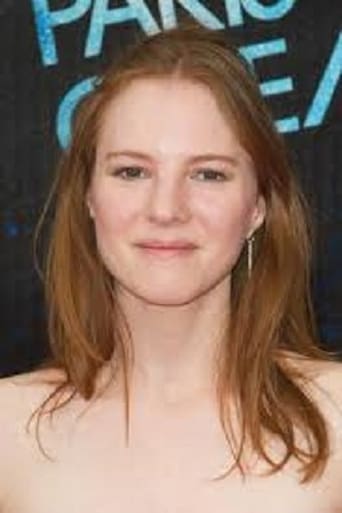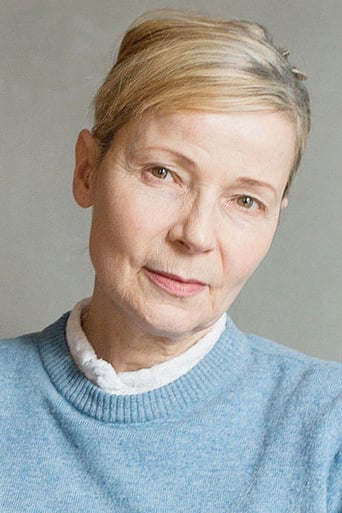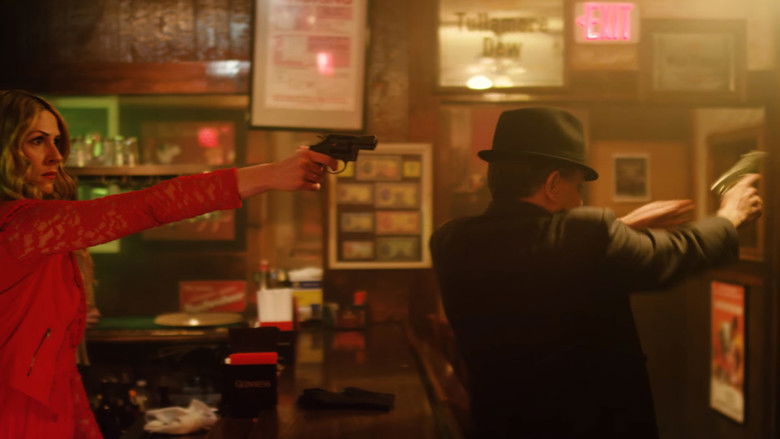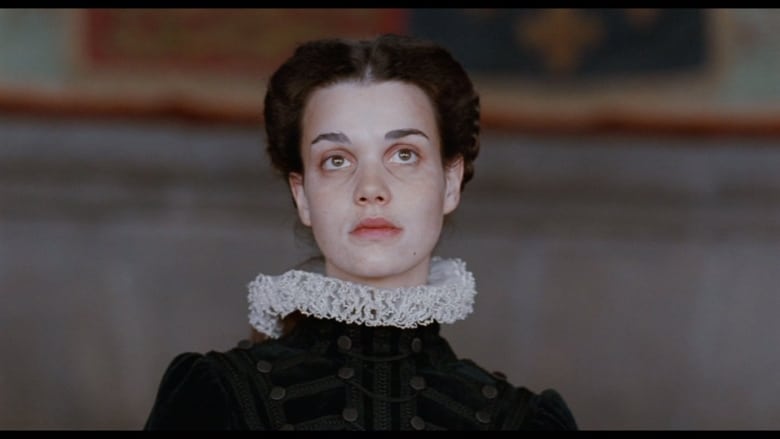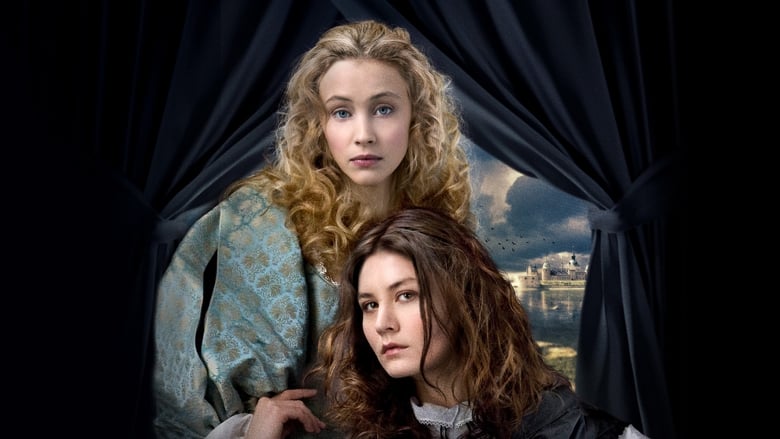A look at the relationship between Marie Antoinette and one of her readers during the final days of the French Revolution.


Similar titles



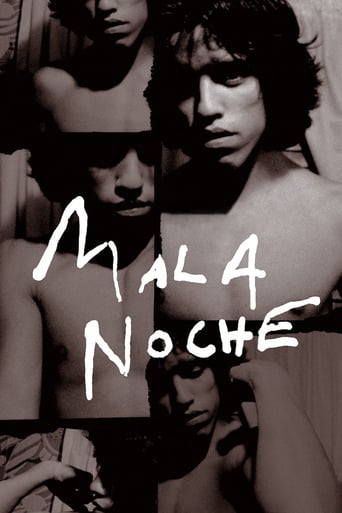
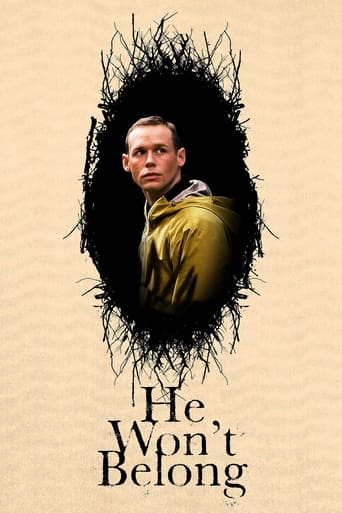

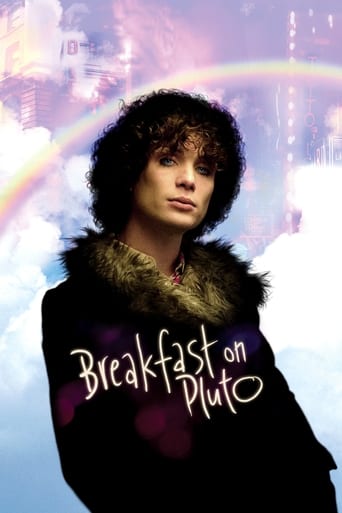



Reviews
French screenwriter and director Benoït Jacquot's twentieth feature film which he wrote with French screenwriter and author Gilles Taurand, is an adaptation of an eponymous novel from 2002 by French author Chantal Thomas. It premiered In competition at the 62nd Berlin International Film Festival in 2012, was shot on locations in France and is a France-Spain co-production which was produced by producers Jean-Pierre Guérin, Kristina Larsen and Pedro Uriol. It tells the story about a French servant and seamstress who lives in a room at the Palace of Versailles in France with a friend named Alice.Distinctly and precisely directed by French filmmaker Benoït Jacquot, this quietly paced fictional tale which is narrated by and mostly from the main character's point of view, draws a gripping portrayal of a person who before the establishment of the French National Assembly, the March on Versailles, a speech by a French attorney named Maxmilien François Marie Isidore de Robespierre (1758-1794) where he articulated a transcending motto which may have appeased the ingrained and unwavering advocates of total equality by adding a word which in all fairness is just as significant and during the beginning of the French Revolution (1789-1799) and the Great Fear when an announcement regarding citizens of the then Kingdom of France (843-1792) who were to be guillotined for the sake of a reform was announced, aspires to serve a Queen of Austrian origins named Marie-Antoinette Joséphe Jeanne de Habsbourg-Lorraine (1755-1793). While notable for its atmospheric milieu depictions, majestically cinematic cinematography by cinematographer Romain Winding, production design by production designer Katia Wyszkop and costume design by costume designer Christian Gasc, this character-driven and dialog-driven story about famine, monarchy, social insurrection and a pivotal time in French history when present political ideologies were being developed and where a royal daughter, sister, wife and mother who did not chose to be a royalist is imprisoned by her passions and a person who isn't of the aristocracy plays on her mistress' passion, using herself as an instrument, to gain her objective, depicts an enigmatic study of character and contains a great and timely score by composer Bruno Coulais.This historic and understatedly romantic silent dance of glances within interior surroundings which is set in the late 18th century in France during the reign of King Louis-Auguste XVI (1754-1793) and where a reader understands whom she has to reach to get to where she is headed, is impelled and reinforced by its cogent narrative structure, subtle character development, rhythmic continuity, comment by Marie-Antoinette: "Have you ever been attracted ?" and the reverent acting performances by French actress Léa Seydoux, German actress Diane Krüger and French actress Julie-Marie Parmentier. A virtuously cinematographic and densely literary narrative feature.
Farewell, My Queen is a sumptuous visual treat and faux-historical romp from French writer and director Benoit Jacquot.Set mainly in Versailles over three days as the Bastille is stormed and the French Revolution gains unstoppable momentum, this is a lavish production with superb costume design and sets.Shown mainly from the point of view of the servants to the royals and aristocrats, the film makes good use of France's palatial architecture and neatly shows the difference in the opulence of the super rich compared to the squalid conditions of their largely loyal and deferential lackeys. The film is beautifully shot, both inside and out, and allows the audience to feel they are being given a personal guided tour of one of France's greatest museums loaded with fine art and antiques.The story focuses on seduction and loyalty between protagonists within the palace and their reaction to the unfolding history which is mainly off-screen. Regrettably, however, the film, which is strongly female orientated in cast and storyline, titillated with lesbian longing and did so in a salacious and voyeuristic manner. It could have amounted to so much more.This is a film that will appeal to all those who mourn the passing of Downton Abbey.
Les adieux à la reine (Farewell, My Queen) is a luxurious, visually stunning film about the moments before the citizens of France stormed the Bastille and headed for Versailles. Without a rather thorough understanding of that period of French history the film may leave some viewers confused as to the story line. This film is more about the manner in which Marie Antoinette functioned as a queen and as a woman with needs than it is about a precise description of what was occurring outside the palace walls.In July 1789, the French Revolution is forming and gaining momentum. Seemingly oblivious to the people of France, at the Château de Versailles, King Louis XVI (Xavier Beauvois), Queen Marie-Antoinette (Diane Kruger) and their courtiers keep on living their usual carefree lives. The comparison to Upstairs Downstairs is evident - carried to the extreme. The matter of note is the window into the personality of Marie Antoinette who has been having a lesbian affair with the Duchess Gabrielle de Polignac (Virginie Ledoyen). To pass her time away when the Duchess is not available for assignations, Marie fills her hours looking at materials, fashion books, and she has a lady in waiting reader - Sidonie Laborde (Léa Seydoux) - read stories to her. The two become confidants and Sidonie is utterly devoted to Marie, knowing that Marie and Gabrielle are in a relationship. But when the news of the storming of the Bastille reaches them, panic sets in and most of the aristocrats and their servants desert the sinking ship, leaving the Royal Family practically alone. Sidonie remains at Marie's side and as preparations for the evacuation of the palace are made, Marie asks Sidonie to disguise herself as Gabrielle and to escape to Switzerland with Gabrielle and her husband dressed in disguise: should the French stop their carriage it would be Sidonie that would be beheaded, saving Gabrielle to return to Marie when the 'nasty business outside Versailles is over'. Sidonie does as she is asked out of her devotion to Marie and the film ends with only with words of the results of the historical events (the beheading of Marie in 1793 etc) - a quite subtle and fitting ending to a moment of recreated history.The film is based on Chantal Thomas' novel and written for the screen by Gilles Taurand and director Benoît Jacquot. The costumes and settings are magnificent and the other members of the large cast (especially Noémie Lvovsky as Madame Campan and Michel Robin as Moreau) are uniformly excellent. It is an interesting look at the characters of French history and though the film in many ways lacks substance it still merits seeing for the period piece that it is. Grady Harp
This film is a wonderful study of what the last days of the French royalty in Versailles, particularly of the way, Marie Antoinette behaved and delivered her commands. It is all seen through the eyes of her reader, a very interesting character. She is the queen's personal reader, someone who has been bewitched by the Queen's strong charm. There are rumours in the palace, and very few people can validate them. Whether it is from loyalty, admiration, or fear, secrets are guarded and some dubious qualities admired, maybe misunderstood. It is hard to believe Sidoine can't see the true nature of the queen. Maybe it is because she might be infatuated with her, or maybe because the way Antoinette is played by Diane Kruger, there is very little choice but to be in awe of her.Kruger is a beautiful woman, and she can play mystical characters very well. One could believe kingdoms were fighting for her Helen in "Troy", and in "Farewell", it is likely she probably wielded and manipulated her court more effectively than her husband did. There is still room in her performance to show that she still felt limited and bound by some conventions, but it was clear she was a powerful woman.Her scenes with Sidoine are full of tension, making us wonder what is going behind each woman's facade. We never really know because all we see is very controlled reactions, emotions, furtive glances, light brushes, hints at deeper and more forbidden forces.Sidoine knows how to find information, and she struggles because it might not be a good idea to know too much. It haunts you. She is in the most inner circle of the palace, and she might see and know too much, but she fails to make good use of what she knows. In fact, like Antoinette, she might be restricted by her social place and gender, and it's that inability to overstep her boundaries that might surprise people in the final scenes of the movie, as we are floored by Antoninette's request and Sidoine's reaction.The film is gorgeously produced, scored, and photographed. There is something about the way that period in French history looked like. It complements the decadence of the upper classes. We know such opulence is not cheap, and we can see in the disdain shown to the lower classes, that there will be consequences for all involved. It is an elegant and intelligent film, full of layers that are shown are effectively displayed. Much is done with the presentation of a costume, a reference to a special dish, how culture is appreciated and used as a weapon here. Antoinette knows her place, and she uses it grandly, as we can see by Kruger's performance. Power is intoxicating and binding, and it can lead to very dangerous resolutions, but this will not beat the power of the human heart, and that's the essence of this queen's maneuvers.
